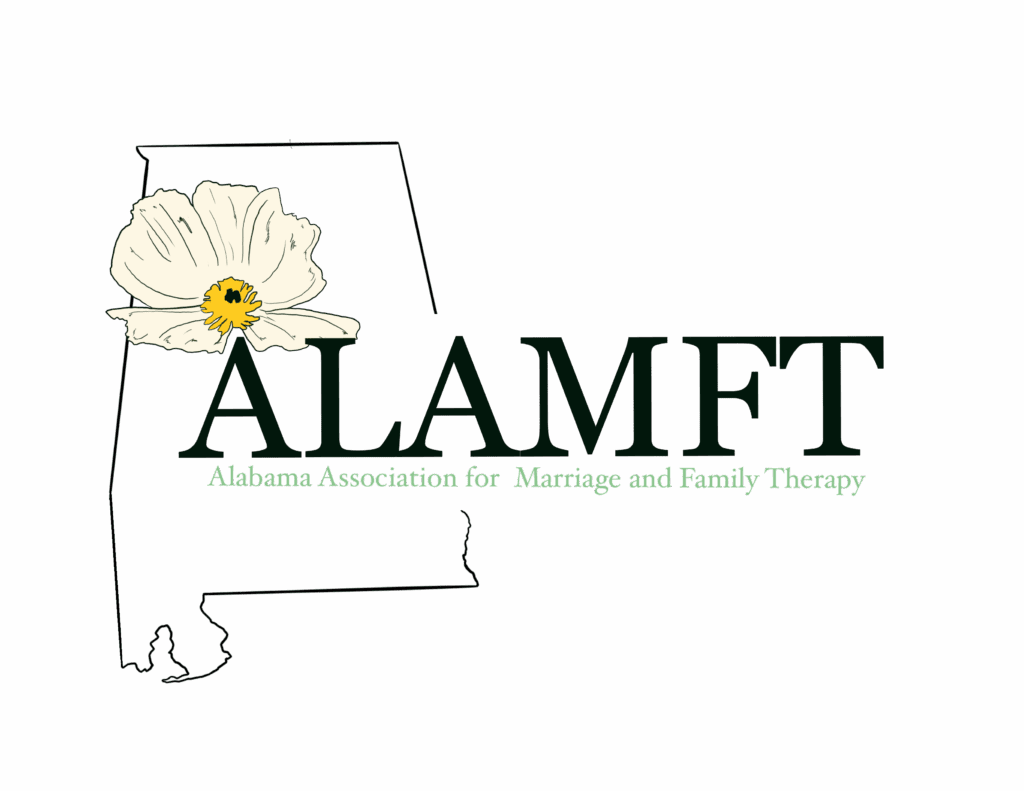
Marriage and family therapy in Alabama operates under a specialized licensing system overseen by the Alabama Board of Examiners in Marriage and Family Therapy (ABEMFT), requiring professionals to progress through a tiered licensure structure from intern to associate to full licensure as a Licensed Marriage and Family Therapist (LMFT). This comprehensive pathway involves obtaining a master’s degree in marriage and family therapy or related field, completing supervised clinical experience, and passing the national examination. Understanding Alabama’s specific requirements, supervision structure, and professional opportunities is essential for building a successful career serving couples and families throughout the state.
The Alabama Board of Examiners in Marriage and Family Therapy (ABEMFT)
The Alabama Board of Examiners in Marriage and Family Therapy serves as the regulatory authority for all marriage and family therapy practice in Alabama. Located at 60 Commerce Street, Suite 1440, Montgomery, AL 36104, the board can be reached at (334) 395-7455. The board’s mission focuses on protecting public welfare through regulation of marriage and family therapy practice, establishing educational and professional standards for licensure, and maintaining ethical standards for the profession.
The board operates Monday through Friday from 8:30 a.m. to 4:30 p.m., with office visits available by appointment only. All official communications, applications, and documentation must be submitted to the board’s physical address, as the board maintains strict documentation requirements for all licensing processes.
Understanding Alabama’s Three-Tier LMFT Licensure System
Alabama’s marriage and family therapy licensing operates through a progressive three-tier system designed to ensure appropriate supervision and professional development:
Marriage and Family Therapy Intern (MFT Intern)
The entry-level designation for students completing graduate-level training programs. Interns work under close supervision while completing practicum and internship requirements as part of their degree program.
Marriage and Family Therapy Associate (MFT Associate or LMFTA)
The transitional license for graduates who have completed their degree but are working toward full licensure. Associates practice under board-approved supervision while accumulating the required post-degree clinical experience.
Licensed Marriage and Family Therapist (LMFT)
The full independent practice license that allows autonomous practice without supervision requirements. LMFTs can establish private practices, supervise associates and interns, and practice independently.
Educational Requirements for LMFT Licensure
Degree Requirements
To qualify for LMFT licensure in Alabama, candidates must complete a master’s or doctoral degree in marriage and family therapy from a regionally accredited institution. The board accepts two primary pathways:
COAMFTE-Accredited Programs: Graduates from Commission on Accreditation for Marriage and Family Therapy Education (COAMFTE) accredited programs automatically meet Alabama’s educational requirements. Currently, Auburn University offers the only COAMFTE-accredited program in Alabama, though students may attend accredited programs in other states.
Related Field Programs: Graduates with degrees in allied mental health fields may qualify if their program included sufficient graduate-level coursework in marriage and family therapy. These applicants must demonstrate completion of specific content areas and may need additional coursework to meet requirements.
Required Coursework Areas
Alabama mandates graduate coursework in six specific content areas, with emphasis on systems theory and systematic interventions:
- Human Development (2 courses minimum)
- Marriage and Family Studies (2 courses minimum)
- Marriage and Family Therapy (3 courses minimum)
- Research (1 course minimum)
- Mental Health Diagnosis (1 course minimum)
- Professional Issues and Ethics (1 course minimum)
The coursework in marriage and family studies and therapy must emphasize systems theory and systematic interventions. The board maintains strict guidelines about what coursework counts toward each content area, and candidates should verify their coursework meets requirements before applying.
Practicum and Internship Requirements
All candidates must complete supervised clinical training that includes:
- Minimum 500 direct client contact hours during the graduate program
- At least 250 hours must involve couples or families (relational therapy)
- Minimum 100 hours of supervision during graduate training
- At least 50 hours must be individual supervision
Graduates from COAMFTE-accredited programs automatically meet these requirements through their degree program. Candidates from related fields may need to complete additional supervised experience to satisfy these requirements.
The Path from Intern to Associate Status
MFT Intern Requirements
Students enrolled in qualifying graduate programs may apply for intern status to begin supervised clinical work. The intern designation allows students to:
- Provide therapy services under approved supervision
- Count clinical hours toward future licensure requirements
- Practice in training clinics and approved sites
- Gain real-world experience while completing their degree
Transitioning to MFT Associate
Upon graduation, candidates apply for MFT Associate status, which serves as the provisional license while working toward full LMFT licensure. The associate application requires:
- Application Fee: $150 (first-time applicants to Alabama board)
- Official Transcripts showing degree completion
- Verification of Practicum/Internship Hours if not from COAMFTE program
- Professional References and character verification
- Background Check documentation
MFT Associates can practice independently within approved settings but must maintain continuous supervision from board-approved supervisors.
Supervision Requirements for Associates
Post-Degree Supervision Structure
MFT Associates must complete a minimum of two years of full-time supervised experience (30+ hours per week) following degree completion. The supervision requirements include:
- 200 total hours of supervision
- 100 hours must be individual supervision
- Remaining 100 hours may be group supervision
- At least 50 hours of post-degree individual supervision required
Clinical Experience Requirements
Associates must accumulate substantial clinical experience including:
- 1,000 hours of direct client contact minimum
- 250 hours must be with couples or families present (relational therapy)
- All hours must be under board-approved supervision
- Experience must span minimum of two calendar years
Approved Supervisors
Supervision must be provided by qualified professionals including:
- AAMFT Approved Supervisors
- AAMFT Supervisor Candidates
- ABEMFT Approved Supervisors
- ABEMFT Supervisor Candidates
In cases of geographical hardship (no approved supervisor within 50 miles), the board may approve alternative supervision arrangements with experienced LMFTs who have not completed formal supervisor training.
Supervision Costs and Logistics
Supervision represents a significant investment for associates. Typical supervision costs in Alabama range from:
- Individual Supervision: $100-150 per hour
- Group Supervision: $50-75 per person per session
With the 200-hour requirement, associates should budget $15,000-25,000 for supervision costs unless their employer provides supervision as part of employment benefits.
The National MFT Examination
Examination Requirements
All candidates must pass the National Examination in Marital and Family Therapy administered by the Association of Marital and Family Therapy Regulatory Boards (AMFTRB). Key details include:
- Eligibility: Available once associate status requirements are met
- Board Approval Required: ABEMFT must approve each candidate
- Examination Fee: Approximately $295 total ($220 registration + $75 scheduling)
- Testing Windows: Limited windows throughout the year (typically 3-4 annually)
Examination Process
The board submits approved candidates’ names to the examination service, and candidates receive registration information directly. Upcoming testing cycles are published in the ABEMFT newsletter, and candidates should plan well in advance due to limited testing windows.
Results are typically available 4-6 weeks after the testing window closes, with scores communicated through the examination service and ABEMFT.
Full LMFT Licensure
Application for Full Licensure
Upon completing all associate requirements and passing the national examination, candidates apply for full LMFT licensure. The application process includes:
- Completed Application on prescribed forms
- Application and License Fees (see fee schedule)
- Verification of Associate Experience including supervision documentation
- Final Supervision Reports from all supervising professionals
- Examination Score Verification
- Character and Fitness Documentation
Scope of LMFT Practice
Licensed Marriage and Family Therapists in Alabama are authorized to provide:
- Individual therapy for relationship and family issues
- Couple and marital therapy
- Family therapy including multiple family members
- Group therapy focused on relationship issues
- Divorce mediation and therapy
- Sexual therapy within the scope of practice
- Consultation and assessment services
LMFTs may practice independently, establish private practices, work as employees, or serve as independent contractors once fully licensed.
LMFT License Renewal and Continuing Education
Renewal Timeline and Fees
LMFT licenses must be renewed every two years. The renewal process includes:
- Renewal Application submission
- Renewal Fee: Amount specified in current fee schedule
- Continuing Education Documentation
- Compliance with Ethical Standards
Continuing Education Requirements
LMFTs must complete continuing education every 24 months to maintain licensure. The specific requirements include:
- Minimum 20 hours of continuing education per renewal period
- Clinical Focus: At least 10 hours must be clinical MFT workshops
- Ethics Training: Required hours in professional ethics
- Supervision Training: Additional requirements for supervisors
Acceptable continuing education includes:
- University courses in marriage and family therapy or related fields
- Workshops sponsored by professional organizations
- Conferences by national, regional, or state MFT organizations
- Clinical training programs approved by the board
- AAMFT-approved continuing education programs
Late Renewal and Reinstatement
LMFTs who allow their license to lapse face additional requirements:
- Late Fees in addition to standard renewal costs
- Additional Continuing Education may be required
- Reinstatement Process for significantly lapsed licenses
- Practice Restrictions until license is current
Associate License Renewal Requirements
MFT Associate Continuing Education
MFT Associates must demonstrate 20 continuing education/experience contact hours for renewal, with specific distribution requirements:
- 3 hours minimum in professional issues and ethics
- 3 hours minimum in diagnosis and treatment
- 5 hours minimum in marriage and family therapy clinical workshops
- Remaining hours in related professional development
MFT Intern Requirements
MFT Interns must complete 10 continuing education hours with specific requirements:
- 3 hours in clinical training
- 3 hours in diagnosis
- 3 hours in ethics
- 1 additional hour in approved professional development
Students enrolled in COAMFTE or CACREP-accredited programs automatically meet continuing education requirements through their academic coursework.
LMFT Supervisor Designation
Requirements for Supervisor Status
LMFTs may pursue supervisor designation to train and supervise associates and interns. Requirements include:
- Current LMFT License in good standing
- Post-Licensure Experience as specified by the board
- Supervisor Training Program completion (18-24 hours typically)
- Application and Fees for supervisor designation
- Mentoring Requirements from current approved supervisors
Supervisor Responsibilities and Benefits
LMFT Supervisors have significant responsibilities including:
- Clinical Oversight of supervisees’ practice
- Documentation Requirements for all supervision provided
- Regular Reporting to ABEMFT on supervisee progress
- Continuing Education in supervision practices
The financial benefits of providing supervision are substantial, with potential annual income of $20,000-40,000 from supervision fees alone, making supervisor designation attractive for experienced LMFTs.
Private Practice Considerations for LMFTs
When LMFTs Can Establish Private Practice
Unlike associates who cannot practice independently, fully licensed LMFTs have the authority to establish private practices immediately upon licensure. This includes:
- Forming Business Entities such as LLCs or professional corporations
- Independent Contractor Status for contract work
- Insurance Panel Participation for direct billing
- Autonomous Clinical Practice without supervision requirements
Business Structure Options
Most Alabama LMFTs choose Limited Liability Company (LLC) formation for private practice due to liability protection and tax advantages. The process involves:
- Name Selection and Availability Check through Alabama Secretary of State
- Articles of Organization Filing ($200 fee)
- Federal EIN Acquisition through IRS online application
- Professional Liability Insurance ($800-1,500 annually typical)
- Business License Registration with local authorities
Insurance Credentialing Process
Insurance credentialing for LMFTs typically takes 90-180 days and involves:
- National Provider Identifier (NPI) registration through NPPES
- CAQH ProView Profile creation for streamlined credentialing
- Individual Panel Applications to major insurers
- Verification Documentation including education, licensure, and malpractice coverage
Major insurance panels in Alabama include Blue Cross Blue Shield of Alabama, United Healthcare, Aetna, Cigna, and Humana. Reimbursement rates typically range from $80-120 per session depending on the panel and geographic location.
LMFT Licensure by Endorsement
Out-of-State LMFT Transfer
LMFTs licensed in other states may qualify for Alabama licensure through endorsement if their original licensing requirements were equivalent to Alabama’s standards. The endorsement process requires:
- Current License Verification from original state
- Education Transcript Review to verify equivalent training
- Supervision Documentation showing comparable experience
- Examination Verification (must have passed equivalent national exam)
- Character and Fitness Review including disciplinary history
Application Process for Endorsement
Endorsement applicants must submit:
- Completed Endorsement Application with required fees
- License Verification from current licensing board
- Copy of Administrative Rules from original licensing state
- Continuing Education Documentation
- Background Check Information
The board reviews each endorsement application individually to ensure equivalency of training and experience requirements.
Provisional Licensure Option
Qualified out-of-state LMFTs who cannot demonstrate full equivalency may receive provisional licensure while completing any deficient requirements. Provisional licenses:
- Valid for One Year with possible one-year extension
- Allow Full Practice while completing requirements
- Require Completion of any missing educational or experience components
- Convert to Full Licensure upon requirement completion
Scope of Practice and Legal Considerations
LMFT Practice Boundaries
LMFTs in Alabama are authorized to practice within specific boundaries defined by their training and state law:
Authorized Services:
- Individual therapy for relationship and family concerns
- Couple and marital counseling
- Family therapy with multiple participants
- Group therapy focused on relationship dynamics
- Crisis intervention related to family issues
- Assessment and treatment planning
Practice Limitations:
- Cannot prescribe medications (physician prerogative)
- Cannot diagnose outside scope of competence
- Must refer for services beyond training
- Cannot practice substance abuse treatment without additional credentials
Ethical and Legal Responsibilities
Alabama LMFTs must comply with multiple ethical frameworks:
- AAMFT Code of Ethics as primary professional standard
- Alabama State Laws governing marriage and family therapy practice
- Federal Regulations including HIPAA privacy requirements
- Professional Liability considerations for all clinical work
Violations of ethical or legal standards can result in board disciplinary action, license suspension or revocation, and civil or criminal liability.
Continuing Professional Development
Professional Organizations
Active participation in professional organizations provides numerous benefits for Alabama LMFTs:
Alabama Association for Marriage and Family Therapy (ALAMFT): The state professional organization offering continuing education, networking, and advocacy.
American Association for Marriage and Family Therapy (AAMFT): The national organization providing clinical resources, research updates, and professional development opportunities.
Regional Organizations: Southeast regional AAMFT affiliates providing additional networking and training opportunities.
Specialized Training and Certifications
LMFTs may pursue additional certifications to enhance their practice:
- Gottman Method Couples Therapy training and certification
- Emotionally Focused Therapy (EFT) for couples and families
- Prepare/Enrich assessment training
- EMDR therapy for trauma treatment
- Discernment Counseling for couples considering divorce
These specialized trainings often command higher fees and provide niche expertise that enhances practice sustainability.
Career Opportunities and Salary Expectations
Employment Settings for Alabama LMFTs
LMFTs in Alabama work in diverse settings including:
- Private Practice (solo and group practices)
- Community Mental Health Centers
- Hospital Systems and medical centers
- Employee Assistance Programs (EAPs)
- University Counseling Centers
- Residential Treatment Facilities
- Faith-Based Counseling Centers
- Government and Military Family Services
Salary and Income Expectations
According to Bureau of Labor Statistics data, marriage and family therapists in Alabama earn varying compensation based on setting and experience:
- State Median Salary: Approximately $39,650 annually (2022 data)
- National Median: $56,570 annually
- Private Practice: $60-150 per session typical
- Community Mental Health: $45,000-65,000 annually
- Hospital Settings: $50,000-75,000 annually
Income potential increases significantly with specialized training, supervisor status, and private practice development. Many LMFTs combine employment with part-time private practice to maximize earning potential.
Career Advancement Opportunities
Experienced LMFTs may pursue various advancement paths:
- Clinical Supervision of associates and interns
- Program Administration in mental health organizations
- Training and Education in university programs
- Consultation Services to organizations and agencies
- Specialized Practice Development serving specific populations
- Research and Publication in marriage and family therapy literature
Alabama LMFT Fee Schedule
Understanding the financial investment required for LMFT licensure helps with career planning:
Initial Licensure Costs
- First-time Application Fee: $150 (applies to first Alabama board application)
- Intern License: $25 initially, $25 renewal
- Associate License: Varies (separate from application fee)
- LMFT License: Varies (check current fee schedule)
- National Examination: $295 total ($220 registration + $75 scheduling)
Ongoing Costs
- Associate Renewal: $25 annually
- LMFT Renewal: Every two years (amount per current schedule)
- Supervisor Designation: Application and maintenance fees
- Continuing Education: $500-2,000 annually depending on choices
- Professional Liability Insurance: $800-1,500 annually
Additional Costs
- Supervision Fees: $15,000-25,000 total for associate period
- Professional Memberships: $200-500 annually
- Specialized Training: $500-5,000 per certification
- Practice Setup: $5,000-20,000 for private practice launch
Resources and Support for Alabama MFT Professionals
Educational Programs in Alabama
Auburn University MS in Marriage and Family Therapy: The only COAMFTE-accredited program in Alabama, highly competitive with excellent clinical training.
University of Alabama MFT Program: Currently pursuing COAMFTE accreditation, faculty from COAMFTE programs, solid clinical training.
University of Montevallo: Offers Marriage and Family Therapy concentration within counseling program.
Online and Distance Learning Options
For students needing flexibility or seeking COAMFTE accreditation:
- Northwestern University Family Institute: Online COAMFTE-accredited program
- Capella University: Online MFT programs
- Northcentral University: Distance learning MFT options
Students should verify with ABEMFT that their chosen program meets Alabama licensure requirements before enrollment.
Professional Development Resources
Clinical Training Centers:
- Auburn Marriage and Family Therapy Center: Training clinic for Auburn students
- University of Alabama Training Clinics: Supervised practice opportunities
- Community Mental Health Centers: Supervised experience sites
Continuing Education Providers:
- AAMFT Continuing Education: National organization workshops and online courses
- ALAMFT Annual Conference: State conference with significant member discounts
- Regional Training Institutes: Specialized workshops and seminars
Supervision and Mentorship
Finding qualified supervision is crucial for associate success:
AAMFT Supervisor Directory: Locate AAMFT-approved supervisors nationwide ABEMFT Approved Supervisors: Board-maintained list of qualified supervisors Professional Networks: ALAMFT membership provides supervisor connections University Alumni Networks: Graduate program connections for supervision opportunities
Financial Resources and Support
Student Financial Aid: Graduate assistantships and financial aid through university programs Professional Development Grants: Some employers provide continuing education funds Professional Organization Scholarships: AAMFT and ALAMFT offer training scholarships Supervision Cost-Sharing: Some practices share supervision costs among multiple associates
Technology and Telehealth for Alabama LMFTs
Telehealth Regulations and Requirements
Alabama allows LMFTs to provide telehealth services under specific conditions:
- Alabama License Required: Must hold current Alabama LMFT license
- HIPAA Compliance: Secure, encrypted platforms required
- Informed Consent: Special telehealth consent requirements
- Emergency Procedures: Clear protocols for crisis situations
- Technology Standards: Appropriate audio/video quality requirements
Approved Telehealth Platforms
HIPAA-compliant platforms suitable for marriage and family therapy:
- Doxy.me: Free basic version with paid upgrades
- SimplePractice Telehealth: Integrated with practice management
- TherapyNotes Video: EHR-integrated telehealth
- Zoom for Healthcare: HIPAA-compliant with Business Associate Agreement
Practice Management Technology
Successful LMFT practice requires efficient technology solutions:
Electronic Health Records (EHR):
- SimplePractice: Comprehensive practice management
- TherapyNotes: EHR designed for mental health
- TheraNest: Affordable option for small practices
Billing and Insurance:
- Office Ally: Free basic billing services
- Therabill: Mental health-focused billing
- SimplePractice Billing: Integrated billing solution
Specialization Opportunities for Alabama LMFTs
High-Demand Specializations
Alabama LMFTs can develop expertise in several high-demand areas:
Trauma-Informed Family Therapy: Working with families affected by trauma, abuse, or violence Military and Veteran Family Services: Supporting military families with deployment and reintegration challenges
Adolescent and Family Therapy: Specializing in teenage behavioral and family system issues Divorce and Co-Parenting Support: Helping families navigate separation and blended family dynamics LGBTQ+ Affirmative Family Therapy: Supporting sexual and gender minority individuals and families Substance Abuse and Family Recovery: Treating addiction’s impact on family systems
Rural Practice Opportunities
Alabama’s rural areas have significant mental health service gaps, creating opportunities for LMFTs willing to serve underserved populations:
- Loan Repayment Programs: Federal and state programs for rural service
- Telehealth Expansion: Serving rural clients through technology
- Community Partnership: Working with rural healthcare systems
- Mobile Crisis Services: Providing emergency family services
Faith-Based and Culturally Sensitive Practice
Alabama’s diverse religious and cultural landscape creates opportunities for specialized practice:
- Christian Counseling Integration: Combining faith perspectives with evidence-based therapy
- Multicultural Family Therapy: Serving Hispanic, African American, and other cultural communities
- Interfaith Family Counseling: Supporting families with diverse religious backgrounds
- Cultural Competency Training: Developing expertise in culturally responsive therapy
Building a Successful LMFT Career in Alabama
Networking and Professional Relationships
Success as an Alabama LMFT depends heavily on professional relationships:
Professional Association Membership: Active participation in ALAMFT and AAMFT Medical Professional Relationships: Connections with physicians, psychiatrists, and healthcare providers Legal Professional Network: Relationships with family law attorneys and mediators Community Organization Partnerships: Connections with schools, churches, and social service agencies Peer Consultation Groups: Ongoing professional development and case consultation
Marketing and Practice Development
Effective marketing strategies for Alabama MFT practice:
Professional Website: Search engine optimized site highlighting specializations Psychology Today Profile: Primary referral source for many therapists Community Presentations: Speaking engagements at organizations and groups Professional Referral Network: Relationships generating consistent referrals Social Media Presence: Appropriate professional presence on relevant platforms
Quality Assurance and Risk Management
Maintaining high practice standards protects both clients and careers:
Professional Liability Insurance: Comprehensive coverage through CPH & Associates or similar providers Documentation Standards: Thorough, compliant clinical documentation Supervision and Consultation: Ongoing professional oversight and case review Continuing Education: Staying current with evidence-based practices Legal and Ethical Updates: Regular training on evolving standards and requirements
Conclusion
The path to becoming a Licensed Marriage and Family Therapist in Alabama requires dedication, significant educational and financial investment, and commitment to ongoing professional development. The state’s three-tier licensure system ensures appropriate supervision and skill development while providing clear progression from student to independent practitioner.
Alabama’s LMFT professionals serve essential roles in supporting the mental health and relationship wellbeing of individuals, couples, and families throughout the state. Whether pursuing private practice, community mental health work, or specialized service provision, LMFTs find meaningful career opportunities that combine clinical expertise with the opportunity to make lasting positive impacts on their communities.
Success requires understanding not only the technical licensure requirements but also the professional, ethical, and business considerations that shape effective practice. By utilizing the comprehensive resources available through professional organizations, continuing education providers, and peer networks, Alabama LMFTs can build sustainable, rewarding careers while providing essential mental health services to their communities.
The growing recognition of mental health’s importance, combined with increasing acceptance of couples and family therapy, creates positive career prospects for well-trained LMFTs willing to serve Alabama’s diverse communities with competence, compassion, and cultural sensitivity.













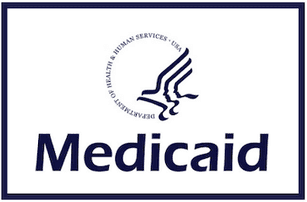

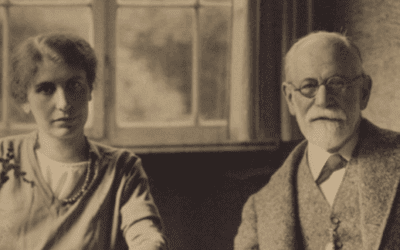





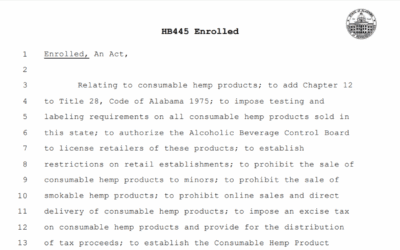
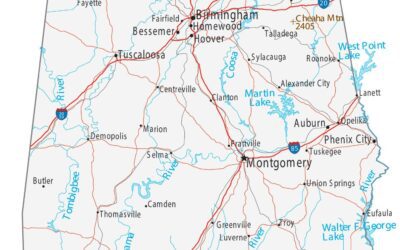
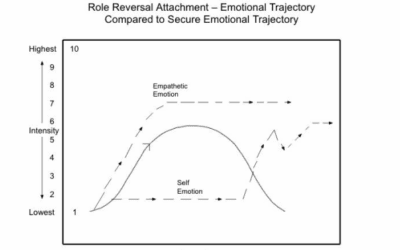


0 Comments